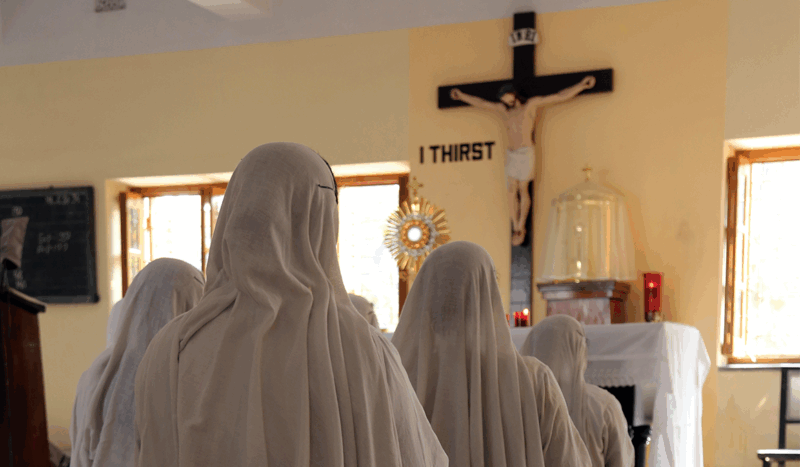
Catholic Sisters in Kerala, India / Adobe Stock
Catholic bishops are calling on the government of the Indian state of Chhattisgarh to drop the “false case” bringing accusations of attempted forceful conversion and human trafficking against two local nuns who were imprisoned for more than a week, according to UCA News.
The Kerala Catholic Bishops’ Council statement in defense of the nuns is being echoed by K.C. Venugopal, parliamentarian and leader of the national opposition Congress party, who penned a letter Aug. 5 calling on federal home minister Amit Shah to drop the case, UCA News reported.
Venugopal said the nuns’ arrest was unjust and that the events leading to it “represent a gross misuse of state power, driven not by law but by communal prejudice and political malice.”
Their imprisonment was based on false charges, he said, reiterating the message of the bishops.
The bishops issued a statement calling on the government to “withdraw the false case against them” and restore their constitutional rights, according to UCA News. The case against the nuns “remains a matter of grave concern,” they said.
As CatholicVote previously reported, Hindu activists stopped Sisters Vandana Francis and Preeti Mary, members of the Assisi Sisters of Mary Immaculate, and Sukhuman Mandavi, who was accompanying them, at Durg railway station July 25. UCA News reports that the nuns came to the station to meet three young adult tribal Christian women who had taken jobs as domestic help in their convents. The activists stopped the nuns and Mandavi and accused them of attempting to convert the women, and took them all to the police station. The police filed charges of attempted forceful conversion and human trafficking against the nuns and Mandavi and imprisoned them. The nuns were released on bail Aug. 2.
According to UCA News, the Council of Catholic Women of Mangaluru Diocese sent a memorandum Aug. 4 to Indian President Droupadi Murmu, requesting the president launch an “impartial probe into the arrest and detention” of the nuns and to protect religious minorities’ rights.
